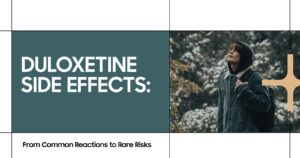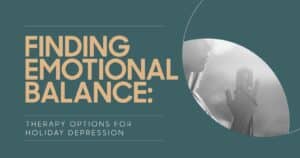Why Psychosis Screening Matters: Early Detection, Better Outcomes
Psychotic disorders affect how a person thinks, feels, and acts. These conditions can include hallucinations, delusions, and disorganized speech. Screening for psychosis helps detect symptoms early and link individuals to mental health services that reduce the severity and duration of illness.
Untreated psychosis can lead to long-term impairment. Early detection of symptoms of psychosis lowers the risk for psychosis and improves quality of life. At Treat MH Tennessee, we offer psychosis-risk screening in both clinical and community mental health settings.
Treat Mental Health Tennessee
Key Frameworks for Psychosis Screening
MIRECC/CoE Guidelines
The Mental Illness Research, Education and Clinical Centers (MIRECC) and Centers of Excellence (CoE) offer frameworks to assess psychosis-risk syndromes. These focus on structured interviews and early symptom identification. They emphasize collaboration with primary care clinics and behavioral health services.
NHS Guidelines
The UK’s National Health Service (NHS) recommends screening for psychosis in primary care settings using validated tools. Their approach focuses on first-episode psychosis and early referrals to specialized care. Their model supports continuous care from screening through treatment.
Assessment Tools for Psychosis
Clinical Measures
Clinical interviews and structured assessments help mental health professionals assess psychotic symptoms. Tools like the Structured Interview for Psychosis-Risk Syndromes (SIPS) and the Comprehensive Assessment of At-Risk Mental States (CAARMS) are commonly used. These tools evaluate both positive and negative symptoms across defined time periods.
Self-report Measures
Self-report tools like the Prodromal Questionnaire-Brief (PQ-B) help individuals report psychotic-like experiences. The PQ-B distress score is commonly used to determine whether further evaluation is needed. These tools allow rapid screening with acceptable internal consistency and predictive validity.
Risk Factors and Psychosis
Comorbid Conditions
Psychosis often co-occurs with other mental health disorders such as anxiety, bipolar disorder, and depressive symptoms. Screening should address these conditions, which can mask or complicate diagnosis. A full clinical interview helps uncover comorbid psychiatric disorders.
Substance Use
Substance use, especially cannabis and stimulants, increases the risk for psychosis. Students with psychosis or young adults may be particularly vulnerable due to peer exposure. Substance use screening is a core component of psychosis-risk screening at Treat MH Tennessee.
Depression
Depressive symptoms often precede or overlap with psychotic experiences. Screening for psychosis should always include mood assessments. This improves the discriminant validity of the evaluation and helps avoid misdiagnosis.
Predictive Measures in Screening
Non-clinical Measures
Non-clinical psychosis measures, such as reports of unusual thoughts or perceptual experiences, help detect risk in broader populations. These tools are useful in community mental health settings and schools. They support early detection in people at risk before full symptoms appear.
APPS Symptoms Analysis
Attenuated positive psychotic symptoms (APPS) include subthreshold hallucinations and delusions. These are key indicators of psychosis prodrome. Evaluating APPS improves the predictive power of early psychosis screening tools.
Treat Mental Health Tennessee
Legal Considerations in Psychosis Screening
Mental Health Acts
Different states have laws governing psychosis screening and treatment. Involuntary treatment may be allowed if there’s a clear danger to self or others. Understanding mental health acts helps providers act ethically and legally.
Consent and Confidentiality
Consent is essential in all psychosis-risk screening, especially in younger populations. Confidentiality should be respected unless there’s a risk of harm. At Treat MH Tennessee, all screenings follow HIPAA regulations and mental health law requirements.
Management Strategies for Psychosis
Medication Adherence
Medication is often required to control symptoms of psychosis. Adherence improves outcomes and reduces the risk of relapse. Behavioral health professionals at Treat MH Tennessee provide education to increase treatment compliance.
Lifestyle Interventions
Healthy habits, including sleep hygiene, exercise, and stress management, support recovery. These strategies can reduce the intensity of psychotic episodes. Treat MH Tennessee incorporates lifestyle coaching as part of our mental health services.
Continuous Care and Monitoring
Follow-up care ensures that treatment remains effective. Monitoring includes symptom tracking, medication side effects, and overall functioning. Coordinated Specialty Care (CSC) models, used at Treat MH Tennessee, emphasize continuous support through the recovery process.
Community and Social Factors
Vocational Functioning
Psychotic symptoms often affect work and school performance. Early intervention can improve vocational outcomes and prevent long-term disability. Our programs support clients in returning to employment or education during recovery.
Family Roles
Families play a key role in detecting and managing psychotic symptoms. Psychoeducation helps them understand the signs and respond effectively. Treat MH Tennessee offers family-focused therapy to improve support systems.
Community Integration
Social connections reduce isolation and aid recovery. Integrating clients into community mental health programs builds long-term stability. Our team collaborates with local services and peer networks to support integration.
Current Study and Research Insights
A systematic review of psychosis screening shows that tools like PQ-B and SIPS have strong predictive validity. Previous studies by Bearden CE, McGorry PD, and Cannon TD support using semi-structured interviews for accuracy. Confirmatory factor analyses validate the structure of these screening measures.
Cut-off scores help determine who should receive further evaluation. Time for completion varies by tool, but most can be done within 30 minutes. Clinical settings often use these results in combination with additional questions and demographic factors to guide treatment planning.
Psychosis-risk measures now consider both clinical and behavioral health concerns. Tools used in screening question design aim for high criterion validity and sufficient power to predict conversion to psychosis. Many tools are now being used in primary care clinics to detect early signs of psychotic spectrum disorders.
Treat MH Tennessee’s Role in Psychosis Screening
Treat MH Tennessee uses evidence-based screening tools in both clinical and community settings. We assess risk for psychosis using validated self-report and clinical measures. Our team evaluates symptoms of psychosis early, linking clients to the care they need fast.
We partner with Community Mental Health Providers and primary care to expand screening access. Our screening for psychosis spectrum includes phone assessment options and on-site interviews. Whether through behavioral health services or direct clinical care, we’re committed to identifying mental health issues early.
We support clients through their experience of psychosis with structured treatment plans. Our services are based on standards from the National Institute of Mental Health, Schizophrenia Research, and Mental Health First Aid. We align our methods with leading researchers like Drake R, Lewis SW, and Markovich PJ.
Final Thoughts on Psychosis Screening
Screening for psychosis is vital to reduce the duration of untreated psychosis. Early detection improves outcomes for individuals with psychosis spectrum disorders. It also supports better functioning and social recovery.
At Treat MH Tennessee, we provide psychosis-risk screening that aligns with national guidelines. We work with individuals, families, and providers to address behavioral health concerns and prevent progression. Contact our team to learn more about how our mental health professionals can help identify and treat psychosis symptoms early.
Treat Mental Health Tennessee
FAQ's
Anyone experiencing unusual thoughts, sensory changes, or social withdrawal—especially teens and young adults—should consider screening.
Most screenings take 15–30 minutes and may involve questionnaires or short interviews, depending on the setting.
Yes, many providers offer remote screening options. Treat MH Tennessee provides phone-based assessments for added accessibility.
Not necessarily. A positive screen indicates risk and the need for further evaluation by a mental health professional.









